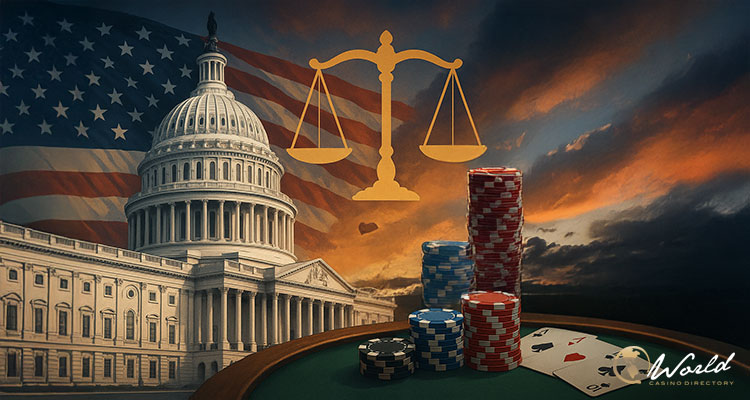Nevada Rep. Dina Titus is intensifying efforts to reverse a controversial tax change impacting gamblers across the United States. On Wednesday, August 27, the co-chair of the Congressional Gaming Caucus announced that she has filed her Fair Accounting for Income Realized from Betting Earnings Taxation Act (FAIR BET Act) as an amendment to the 2026 National Defense Authorization Act (NDAA), a legislative strategy that significantly boosts the proposal’s chances of passage.
Strategy to Secure Passage
The FAIR BET Act, initially introduced to the House Committee on Ways and Means on July 7, 2025, seeks to undo a key provision of the One Big Beautiful Bill Act (OBBBA), which passed on July 4. The OBBBA reduced the allowable deduction for gambling losses from 100% to 90%, starting January 1, 2026. This change sparked backlash from both the gaming industry and lawmakers, as it means players who incur net losses could still owe taxes on money they never actually earned.
H.R. 4304, the one-line bill introduced by Titus, proposes to amend the OBBBA “by striking ‘90 percent’ and inserting ‘100 percent.’” By attaching the proposal to the NDAA — widely regarded as a “must-pass” piece of legislation — Titus is pursuing a legislative shortcut that could secure the deduction’s restoration without requiring the standalone bill to navigate the full Congressional process.
“The bill mostly relates to defense matters, but does contain other legislative priorities that members submit,” Titus’ office said in a statement. “We do not know when the bill will be heard by the Rules Committee or voted on by the full house, but expect it to be in the coming weeks.”
As reported by InGame, Titus also emphasized the urgency of the measure on social media platform X, writing, “I strongly encourage the Republicans to make this amendment in order when it goes before the House Rules Committee upon our return to Congress next month.”
Broad Support for the FAIR BET Act
The FAIR BET Act has gained bipartisan support since its introduction, with ten co-sponsors already signed on. During a July field hearing in Las Vegas hosted by the Ways and Means Committee, GOP Chair Rep. Jason Smith acknowledged that both parties were actively working to “address” the issue before the revised deduction takes effect at the start of next year. Smith, along with other Republican lawmakers, has publicly criticized the provision and, in some cases, admitted that they were unaware the change had been included in the original legislation.
The industry has also rallied behind the bill. At the Las Vegas hearing, Titus noted support from the Nevada Resorts Association, Nevada Governor Joe Lombardo, and numerous tribal entities. The American Gaming Association (AGA) echoed these concerns in a letter to the committee, arguing that the tax change “creates an unfair precedent by taxing phantom income and uniquely penalizing a legal, heavily regulated activity.”
Executives from the largest operators in Las Vegas have also been lobbying lawmakers. MGM Resorts International CEO Bill Hornbuckle confirmed that he, along with Caesars Entertainment CEOTom Reeg and Wynn Resorts CEOCraig Billings, has met with Congressional leaders to discuss the implications of the OBBBA provision. Hornbuckle described the meetings as critical for communicating the financial strain the tax change could place on both the gaming industry and individual players, highlighting the urgency of restoring the full deduction.
The FAIR BET Act is not the only proposal seeking to reverse the OBBBA’s loss deduction change. In late July, Kentucky Rep. Andy Barr, a Republican, filed the Winnings and Gains Expense Restoration Act (WAGER Act), while Nevada SenatorCatherine Cortez Masto introduced the Facilitating Unbiased Loss Limitations to Help Our Unique Service Economy Act (FULL HOUSE Act) earlier in the month. These parallel initiatives underscore the broad recognition of the problem and the bipartisan momentum to rectify it before the changes are implemented.
By leveraging the NDAA’s must-pass status, Titus hopes to secure swift approval of her amendment when Congress reconvenes in September. Until then, the FAIR BET Act remains pending before the Ways and Means Committee, with stakeholders across the gaming industry watching closely as the legislative process unfolds.



